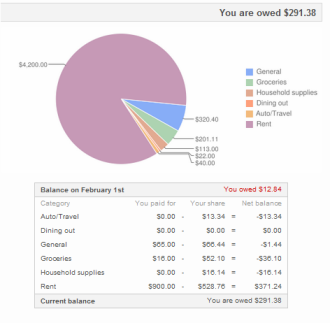On February 2nd, the US Supreme Court decided that the Fair Housing Act does not apply to roommate searches. The upshot of this decision is that people are free to conduct roommate searches based on sex, religion, marital or family status. That is, you can “discriminate” as much as you please in picking your roommates (but not if you are a landlord renting to tenants).
A recent opinion piece in the Washington Post praised this decision. It’s worth taking the author, Riger Oliveri, seriously – she is an associate Dean at University of Missouri Law School who has studied discrimination in Craigslist posts, and she practiced Civil Rights law at the Justice Department.
While broadly expressing support for the Supreme Court’s arguments, Oliveri adds that preserving choice in roommates will keep government regulation out of the home for non-traditional living arrangements as well. For instance, unmarried couples living together won’t have to fear government regulation according to the logic of this opinion (the case was against Roommates.com).
I take a slightly more nuanced view of the opinion. I share Oliveri’s enthusiasm for keeping regulation out of the privacy of the home. Picking roommates based on religion, gender, and family status makes sense – these create understandable and important practical issues inside a residence. For instance, the Fair Housing Act was clearly not intended to force people to live with people of the opposite gender against their will. What I am concerned about is that racially based roommate discrimination was not addressed by the opinion.
In tight housing markets like Boston or New York, one of the only affordable ways to rent is to find roommates with spare bedrooms. If there are no protections for searchers, I worry that racist roommate postings could keep a minority group out of a neighborhood entirely. This is exactly what the Fair Housing Act was designed to prevent.
Fortunately, Oliveri’s own study shows that this isn’t a very large issue at present. In her work, she finds only 9.7% of the posts seeking roommates on Craigslist would have violated the Fair Housing Act. Since most roommate posts only discriminated based family status, there is little evidence that roommate racism is a pervasive problem. Hopefully, this Supreme Court decision will not change people’s behavior in the future.
To summarize: I don’t object to the Supreme Court’s decision because choosing roommates based on gender, religion, and family status is clearly legitimate. I agree with Oliveri that the Fair Housing Act is too broad and would create too much regulation inside the home if it applied to roommate choice. My hope is that common decency will keep racist roommate ads to an insignificant fraction. If that proves too optimistic a hope, then we may yet see another law or another Supreme Court case.



You must be logged in to post a comment.